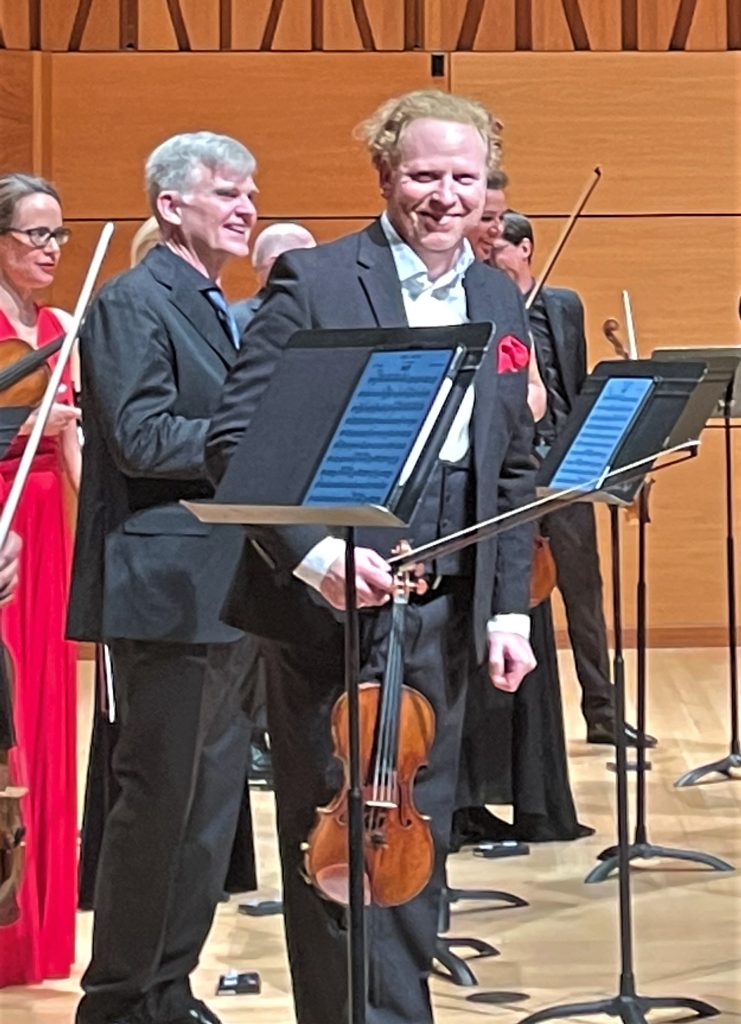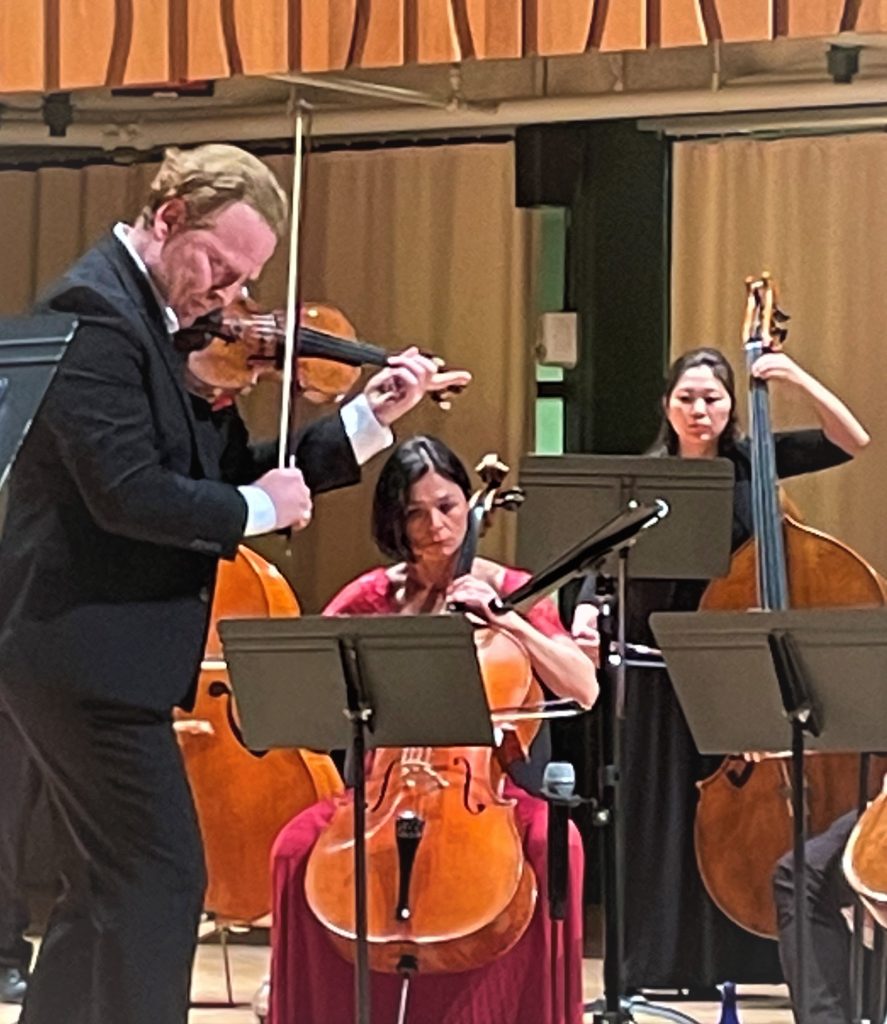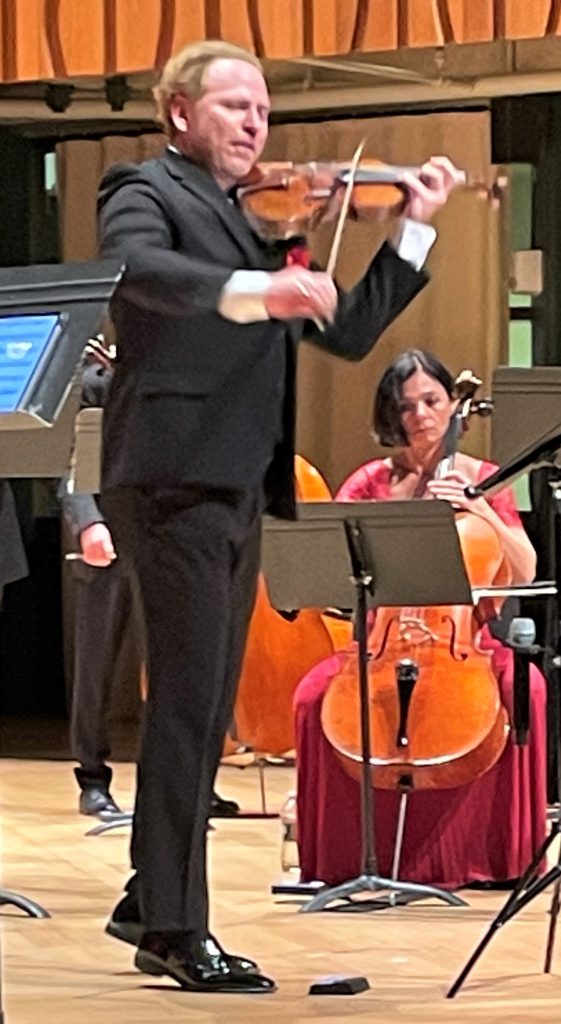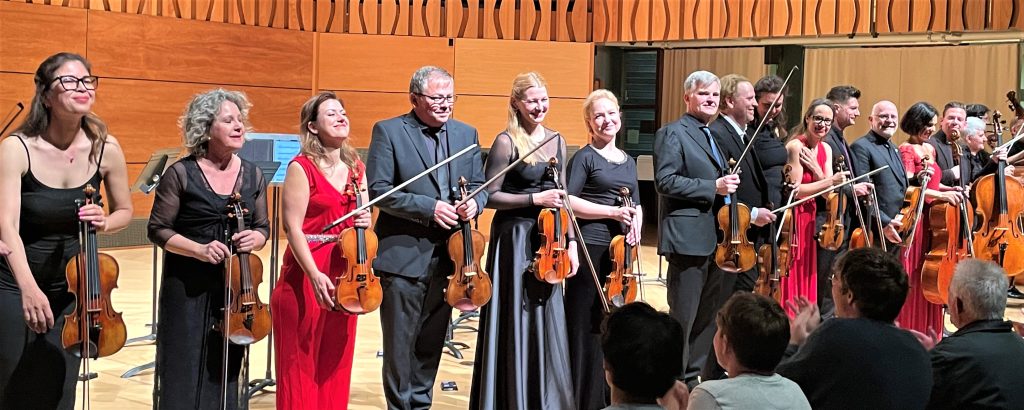
by Kevin T McEneaney
Music Director Fabio Witkowski of Hotchkiss School somehow managed to book Daniel Hope, one of the greatest living violinists, and the Zurich Chamber Orchestra, of which Hope is Director. They are currently on tour in the U.S. Hope, who has both Irish and German passports, had been a young prodigy of Yehudi Menuhin and often played with Menuhin on tour. Hope has over 30 recording albums, any of which have won international awards. During the last six years of the Beaux Arts Trio ensemble, Hope was the violinist for over 400 performances.
The Zurich Chamber Orchestra opened with The Lark Ascending (1914) by Ralph Vaughn Williams, which was inspired by George Meredith’s rhyming eight-syllabic poem of that title where the bird displays “self-forgetfulness divine.” This version was a recent arrangement by Adam Johnson. I have heard this work before, both in concert and on recordings, and I must say this arrangement accompanied with fantastic bowing by Hope, in his ability to shiver soaring tremolo with mellow resonance, remains a superior concert work. With eleven violins backing Hope, this was that astonishing, elevating, concert experience that one aspires to hear!

Violin Concerto in D minor, MWV 03, composed by Felix Mendelssohn at the precocious age of twelve, and dedicated to Mendelssohn’s second violin teacher, Eduard Rietz, this work features lively dialogue between violin and orchestra. Extensive counterpoint reflects the influence of J.S. Bach; later in life Mendelssohn would lead a Bach revival. The dialogue between solo violin and orchestra displays much youthful humor and delights in prankish reversals. Here Hope exchanged impish smiles with violin Concertmaster Willi Zimmermann. This amusing masterpiece written for a home concert was never published. A musician discovered the original manuscript in the hands of an antiquarian book dealer and brought it to the attention of Yehudi Menuhin in 1951; one year later Menuhin premiered the work at Carnegie Hall.
Silent Music for string orchestra by Valentin Silvestrov (b. 1937) is a post-modernist meditation on the fleeting quality of life amid turmoil. Happy memories mingle with current chaos via two slow Serenade movements, comparing the joys of childhood to contemporary tragedy. After the bombing of Kiev Silvestrov, nearly blind, walked on foot to Berlin where he now lives. The melancholy low dynamics of the melodies reminded me of John Field, the Irish composer who invented the Romantic Nocturne in St. Petersburg.

Serenade for Strings, Op. 48 (1880) by Piotr Ilyich Tchaikovsky, a string quintet for many stings (the more the better said the composer), written in sonata format without traditional transitions, featured Romantic ambiance with its first movement homage to Mozart that mutated personal inflection into public waltz (a format that I’m not in love with, yet this was a posture of satiric foil) managed to arrive at a climatic triple meter that was positively exhilarating. Here cellist Nicola Mosca was tonally ravishing. The psychology of the work displays the energetic improvisation of Russian dancing over the somnolent qualities of Viennese waltz with its repetitive, soporific inanity. Daria Zappa on violin also excelled in this piece. as did bassist Seon-Deok Baik. Hope was transcendent in the last movement.
The audience exploded, standing and long applauding. The orchestra retuned to play an encore of Aaron Copland’s Rodeo (1942) composed in Western cowboy polyrhythms. This upbeat transmutation of Mexican and Irish melodies with African-American rhythms remains an unusual masterpiece of popular humor. Once again Hope excelled on his 1742 Guarneri del Gesù violin.
After more standing ovation, the orchestra returned once more to play America from West Side Story by Leonard Bernstein. This was a joyous tribute in celebration of the American tour that Hope and the Zurich Chamber Orchestra was obviously enjoying!
